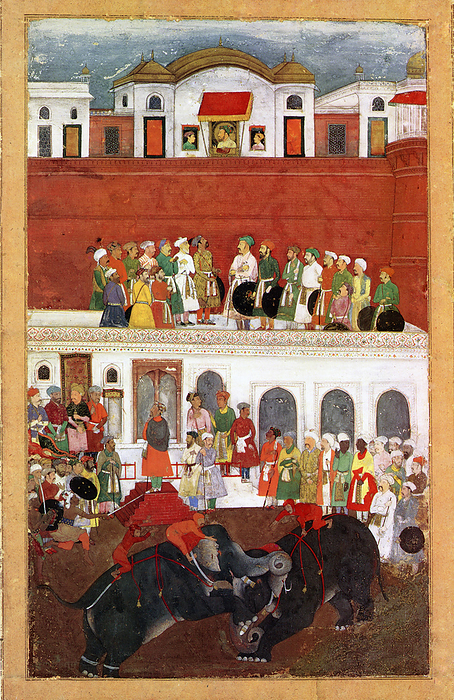
ED
India: A miniature painting (c. 1650 CE) of Shah Jahan the Magnificent and two of his sons watching from windows as elephants battle in the courtyard of the Red Fort in Delhi.
Shahab-ud-din Muhammad Khurram Shah Jahan I (1592-1666) was the emperor of the Mughal Empire in India from 1628 until 1658. Jahan comes from Persian meaning 'king of the world'. While young, he was a favourite of his legendary grandfather Akbar the Great. While very young, he was pointed out to be the successor to the Mughal throne after the death of Emperor Jahangir. His reign has been called the Golden Age of Mughals. In 1658 he fell ill, and was confined by his son Emperor Aurangzeb in the citadel of Agra until his death in 1666.
Details
ID
175784084
Collection
License type
Editorial
Photographer
Creation date
03-12-2021
Contact Aflo for all commercial uses.

More
Top Categories
